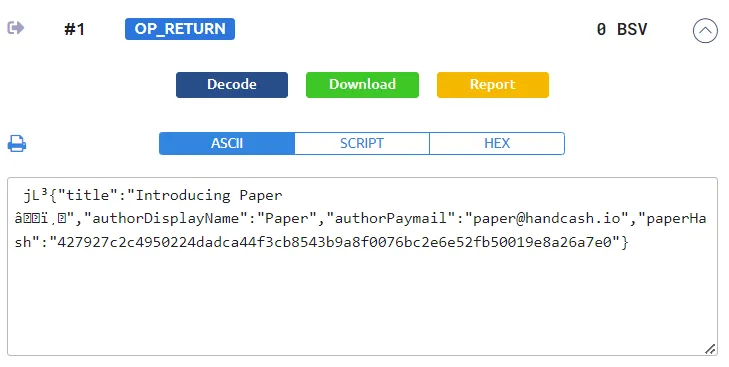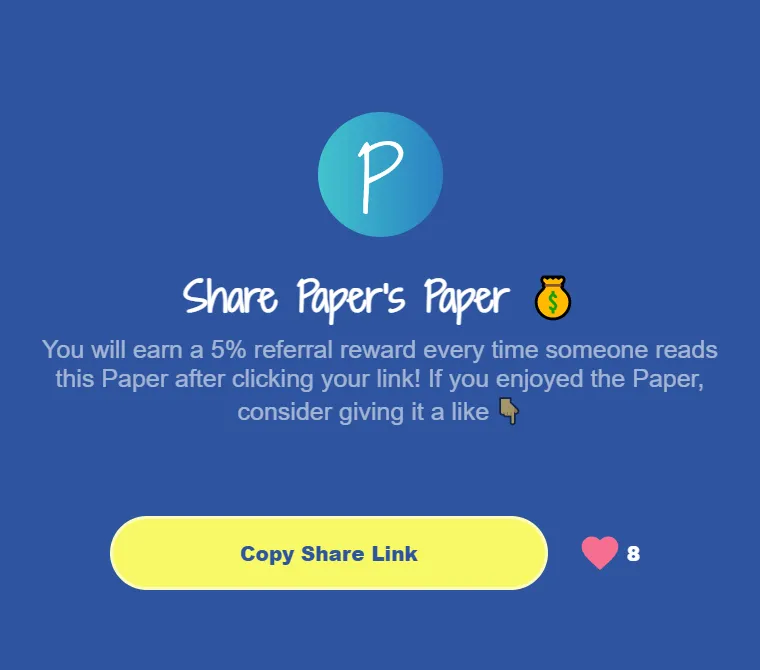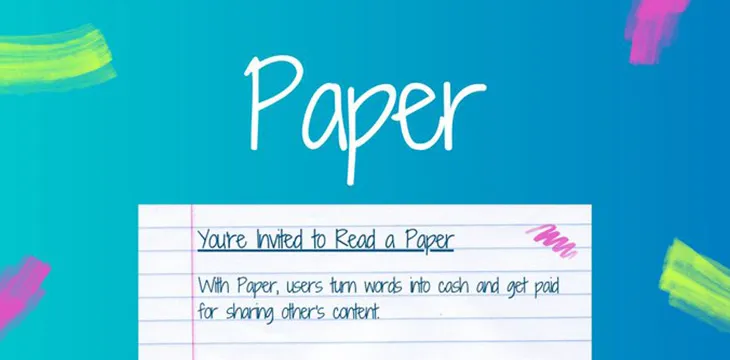|
Getting your Trinity Audio player ready...
|
Paper is a paywall content creation application that stealthily launched in February 2023. Writers can lock their content behind paywalls, accepting payment in Bitcoin SV. The platform has a slick user experience, that provides an experience of interacting with an actual notebook. Paywalled applications with payment in digital currency are not new, but this one feels great to use. HandCash Pay, Twetch wallet and RelayX are supported payment methods.
Hello World 👋
Start monetizing your content with Paper 👇 https://t.co/QUcZrxAvxk
Currently in alpha as a nights/weekends hobby project. Looking for feedback. Get started with a @handcashapp @twetchapp or @relayxio wallet. pic.twitter.com/zdBl3HHSWp
— Paper (@earnwithpaper) February 20, 2023
Additionally, Paper’s content is stored on-chain via a SHA256 hash as proof of existence in an OP_RETURN output, along with author metadata.

One does not have to be a writer to earn with Paper, as curators can earn as well. If curators share an article and customers unlock the content via their link, they earn 5% of the payment real-time.

On the Discover page, users can view other papers written, ordered by likes. The amount earned by each post is indicated as well so prospective readers can know how many customers paid for the content.
Reviving a trend in the BSV community from as early as 2019, Paper has a features page where users can fund various features such as making the site mobile-friendly, or developing it into a full Progressive Web Application (PWA). Users fund by copying the BSV address, and sending coins via whatever wallet they choose. Interestingly, this approach lets the market decide first, if Paper is even something the market wants, and secondly the direction they would like to take it. For example, if Paper does not even feel compelled to become mobile compatible in a world where most humans have a smartphone, then it does not make sense to spend any more effort on developing the platform further.
This way, the developers of Paper could move on to another “nights/weekend alpha project” instead of misallocating time and effort on a product that no one desires or demands. At the same time, if prospective users start funding features suddenly because they see the value, then the developers can always come back to iterate.
This quick, ruthless, and iterative business approach needs to be utilized more in the community where more applications are sorely needed. Spending months or years developing a product that the market may or may not reject, where conditions are constantly rapidly changing, is extremely risky. Prior to the Internet and smartphone inventions, without Bitcoin the old approach made sense. Now, where the distribution of the fixed supply of coins dwindles every four years, the incentive structure is to earn as many coins as possible as quickly as possible. If one mined Bitcoin in 2010, they earned eight times more coins than if they mined a block today.
The only way to increase Bitcoin’s value is through use, not HODL’ing. Applications such as Paper generate use, regardless of if it will be successful or not. More apps being developed and tried also demonstrate what the market desires, so that others can know if a similar path makes sense before they start innovating themselves.
Watch: The core of Web3 is data ownership

 08-02-2025
08-02-2025 





